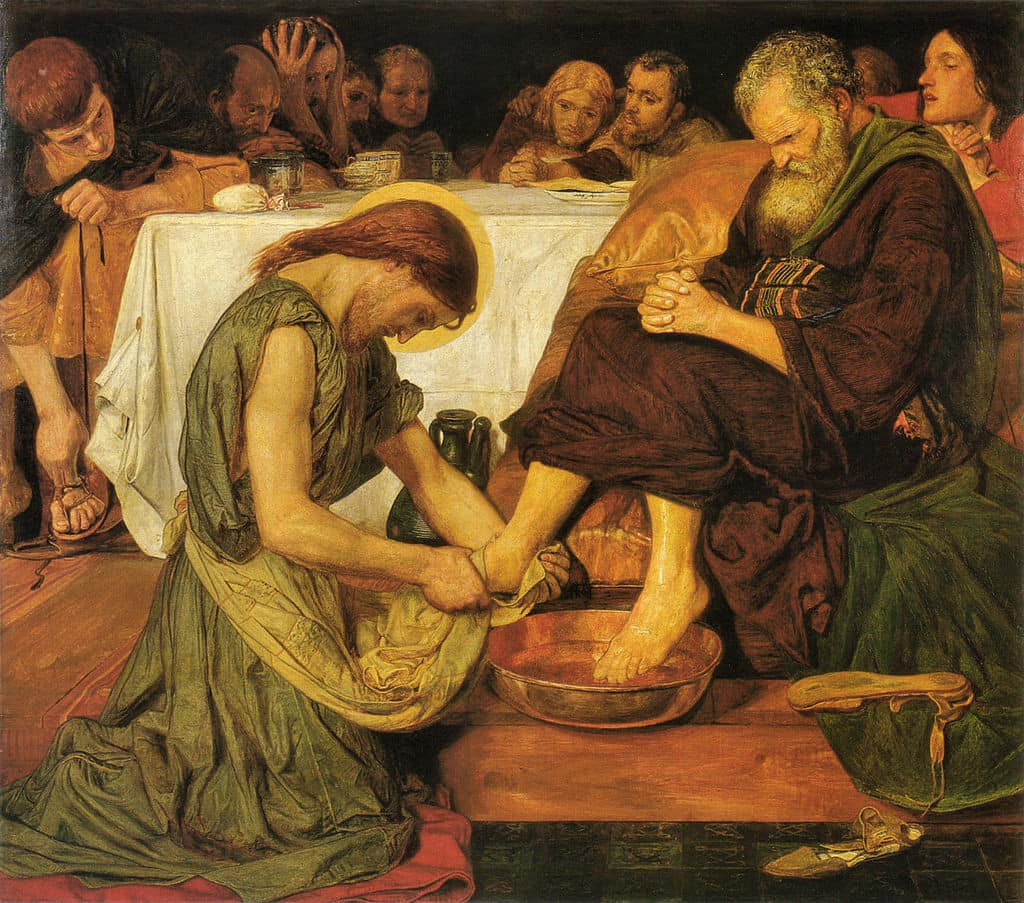226 total views
Homily for Tuesday of the 2nd Wk of Lent, 07 Mar 2023, Matthew 23:1-12




I wonder when it was in the history of Christianity that the ordained ministers of the Church began to be classified as a “clergy,” and distinguished from the laity among their fellow believers. The distinction was clear in Judaism, and it seems to be one of the things that Jesus himself criticized very often. Today’s Gospel is an example of the biting words Jesus said about the clerics of his time.
People often forget that Jesus himself was not a cleric but a lay person in Jewish society. He knew that in the secular world, there was a great tendency for people in authority TO LORD IT OVER and TO MAKE THEIR IMPORTANCE FELT. He said this in reaction to James and John when once, they expressed to Jesus their desire for positions of authority within their group. Jesus plainly stated: “IT SHALL NOT BE SO AMONG YOU.” (Mk 10:43)
I think Jesus is actually exaggerating when he says “Call no one on earth Father,” because I am sure he called Joseph “father”. Early Christians called each other “brothers and sisters”, and seem to have addressed their pastors as “Father”.
Honestly, I squirm when I am addressed in Church by the title YOUR EXCELLENCY. In other countries, archbishops are still addressed as YOUR GRACE, or even YOUR LORDSHIP.
I would still understand it when it is secular authorities like mayors, governors and ambassadors who address us by such titles, because they are used to following civil protocols. Besides, that is how they themselves wish to be addressed anyway. But Jesus sternly reminded his disciples—“IT SHALL NOT BE SO AMONG YOU.”
Once, in a diaconal ordination homily, I told the candidates that the elegant dalmatic vestment that they were going to be vested with was basically just a GLORIFIED APRON, no different from that of a waiter in a restaurant. And the stole which we bishops and presbyters put on our shoulders draws its inspiration from the yoke that is put on the backs of oxen and carabaos when they are made to pull a cart or a plow. All of that seems to be forgotten when the symbols turn into liturgical paraphernalia that get associated with specific hierarchical offices.
Not many Catholics know that “Monsignor” is not a ministerial role but a title that literally means “MY LORD.” There are actually only three ordained ministries in the Church—those of the deacon (meaning, servant), the presbyter (meaning, elder) and the bishop (meaning, overseer). They have been wrongly understood as gradations of dignity in the hierarchical office.
Being a deacon (servant) in not a mere stepping stone to becoming a presbyter (elder), just as being a presbyter is not a mere stepping stone to becoming a bishop (overseer). IT IS NOT SO. The diaconate is the very foundation, the very core of all the ordained ministries. When we bishops or presbyters stop doing our jobs in the spirit of diakonia (servanthood) and begin to lord it over, it is then that our office begins to lose its foundation. That is when it gets reduced to a clerical status.The claim to a “sacred power” of a special elite in the church seems to be the root cause of the disease of clericalism. It is also what reinforces all forms of authority abuse in the church.
All power in the Church is from the Holy Spirit. It is gift bestowed by the Holy Spirit for the ministry or service. In the Book of Sirach 3:18, there is a beautiful reminder to people in positions of authority: “The higher you get, the humbler you should be. Then the Lord will be pleased with you.”
It took one like Pope John XXIII to realize how ridiculous it was to have a heavy pope like him carried by men on a mounted throne called Sedia Gestatoria. It took one like Pope Francis to feel the awkwardness of living in that part of the Vatican that was casually called a “Papal palace”. No wonder he chose to reside at the Casa Santa Martha. And yet, up to now, many residences of bishops are still called “Bishop’s Palaces” in many countries.
It is when we exalt ourselves, when we extol our own greatness and separate ourselves from the rest of humanity that we can expect to be humbled, or sometimes even publicly humiliated. That happens especially when our human frailties get the better of us.
They say “To err is human” and “to forgive is divine.” I beg to disagree. I would say, “To err is human,” and “to forgive is also human.” We should never equate humanity with frailty—thanks to Jesus, our new model of humanity. After all, human though we are, we bear the image and likeness of divinity in ourselves. We are such paradoxical creatures who can sometimes be the best of ourselves and at other times the worst of ourselves. We are weak and sinful but we are loved unconditionally and redeemed by Christ, the God who became human so that humans can become truly divine.


















